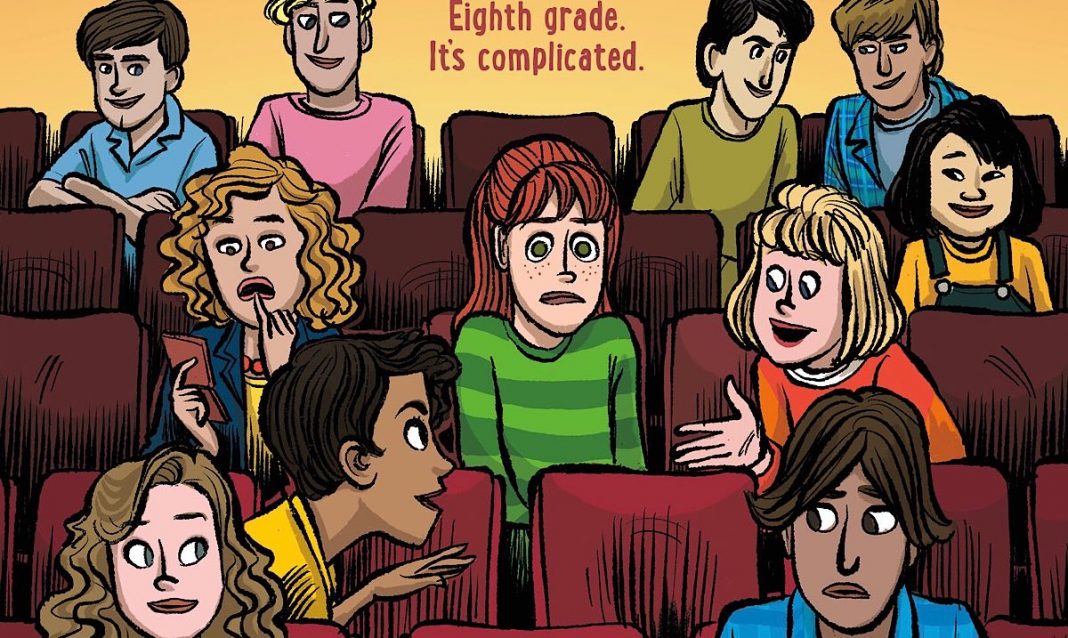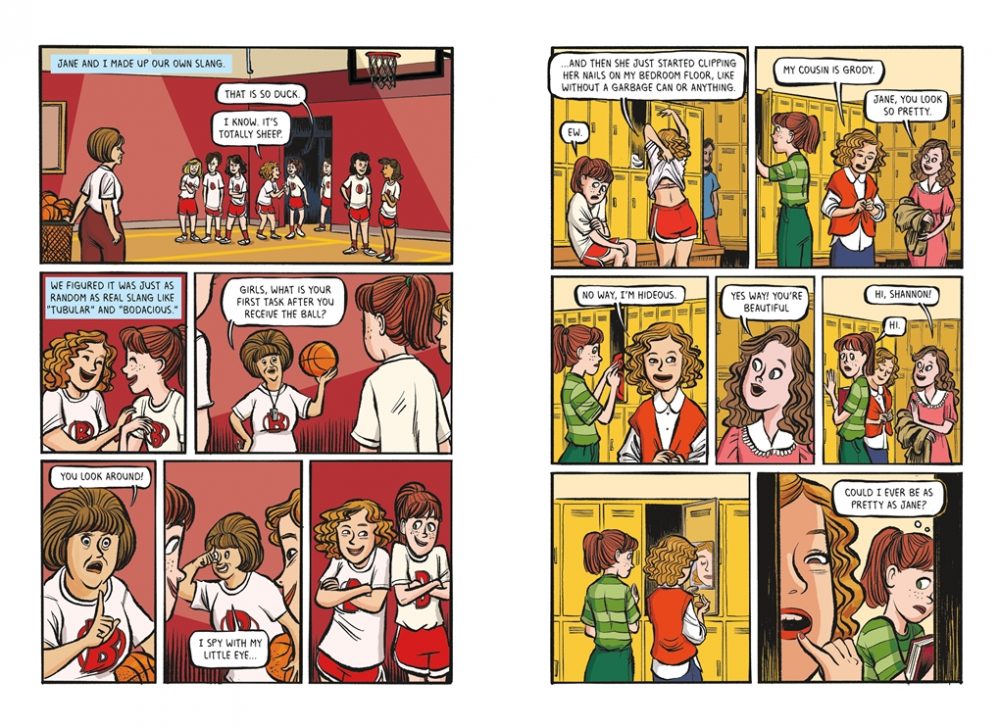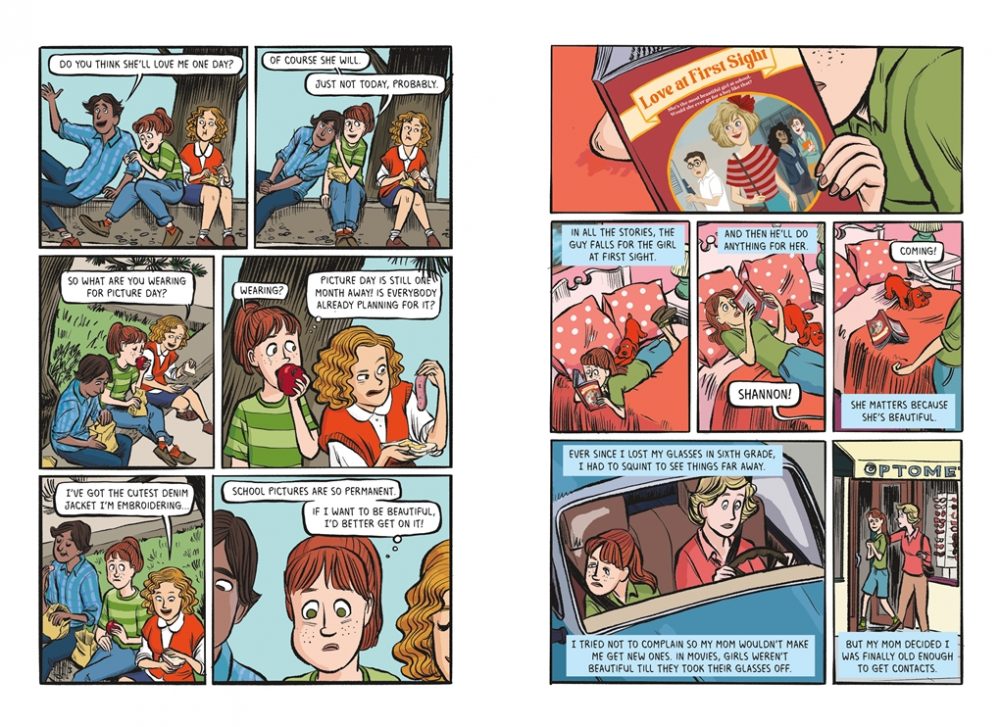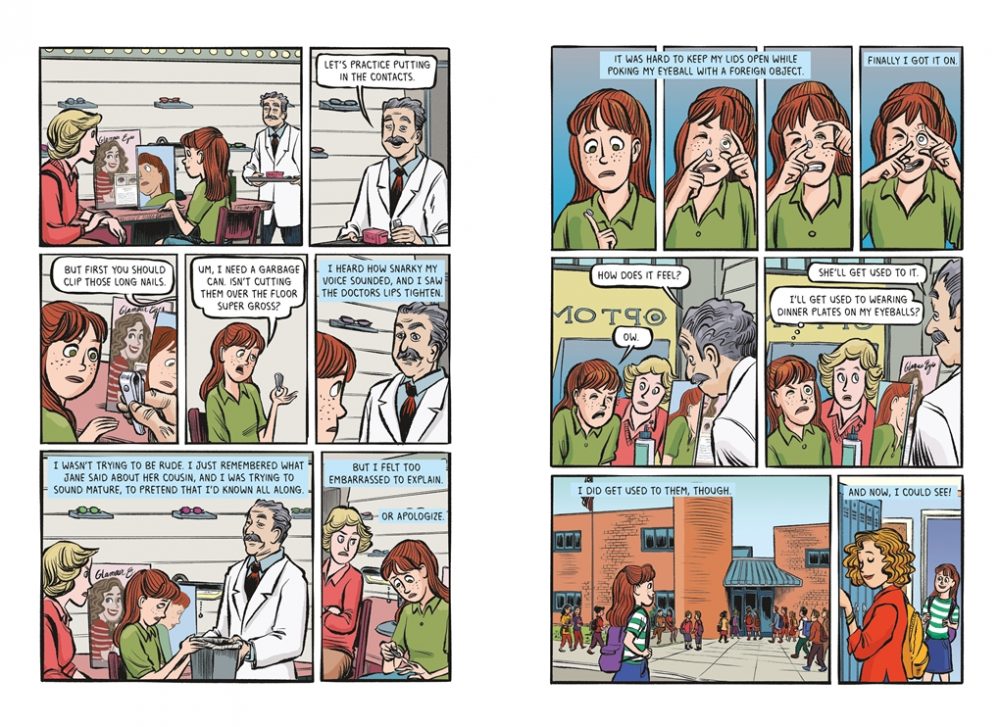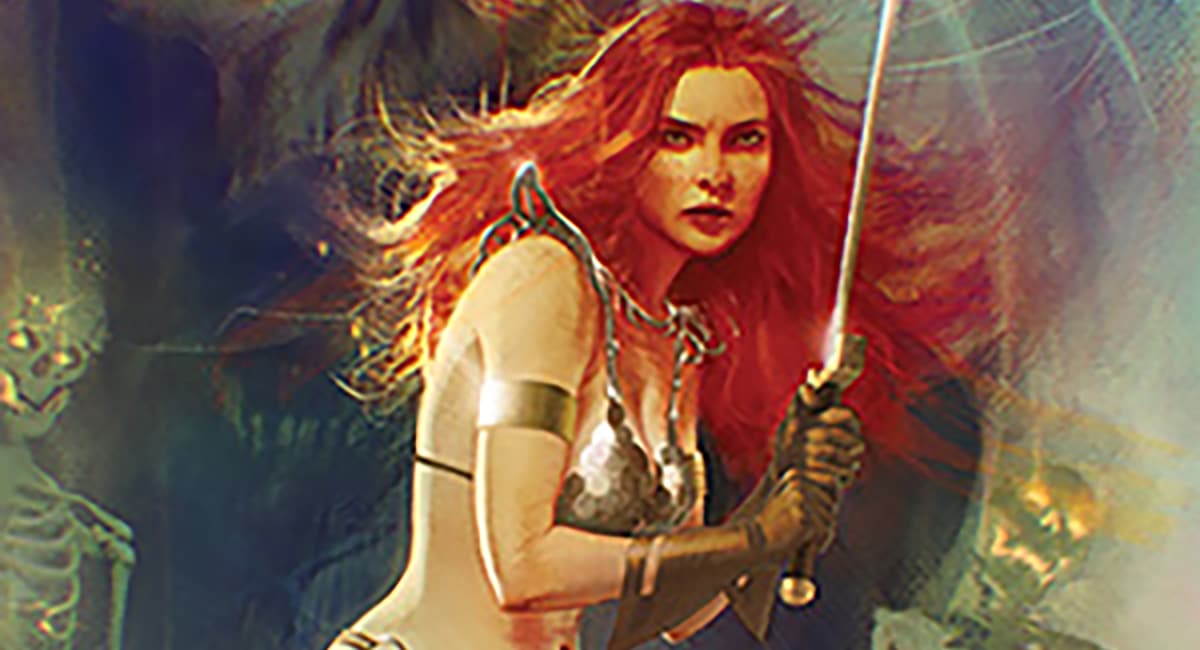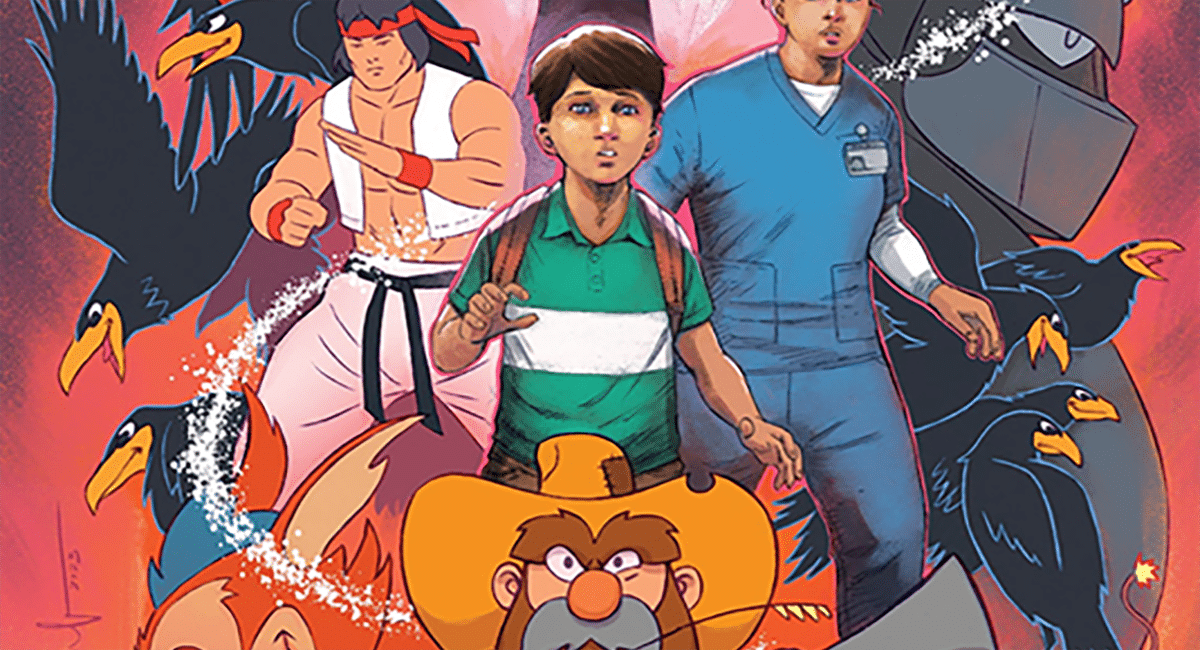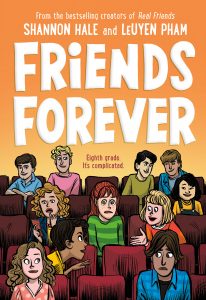
Eighth grade is a scary time for any tween. On the one hand, eighth graders are the privileged upper class that other middle schoolers look up to. There is also anxiety for the social and performative expectations each must face, whether it be schoolwork, surviving popularity contests, or worries about a future beyond middle school. In Friends Forever, Shannon Hale and LeUyen Pham capture that struggle with their trademark insight and compassion. If there was only one book I could share with my own eighth grader, Friends Forever would be it.
Friends Forever is the duo’s third book of a three-part graphic memoir. At the conclusion of Best Friends, Little Shannon is a member of the popular crowd, but she questions her own self worth in the context of her friendship circle. In Friends Forever, Little Shannon strikes out on her own path for eighth grade, but not without some internal struggle and naysaying.
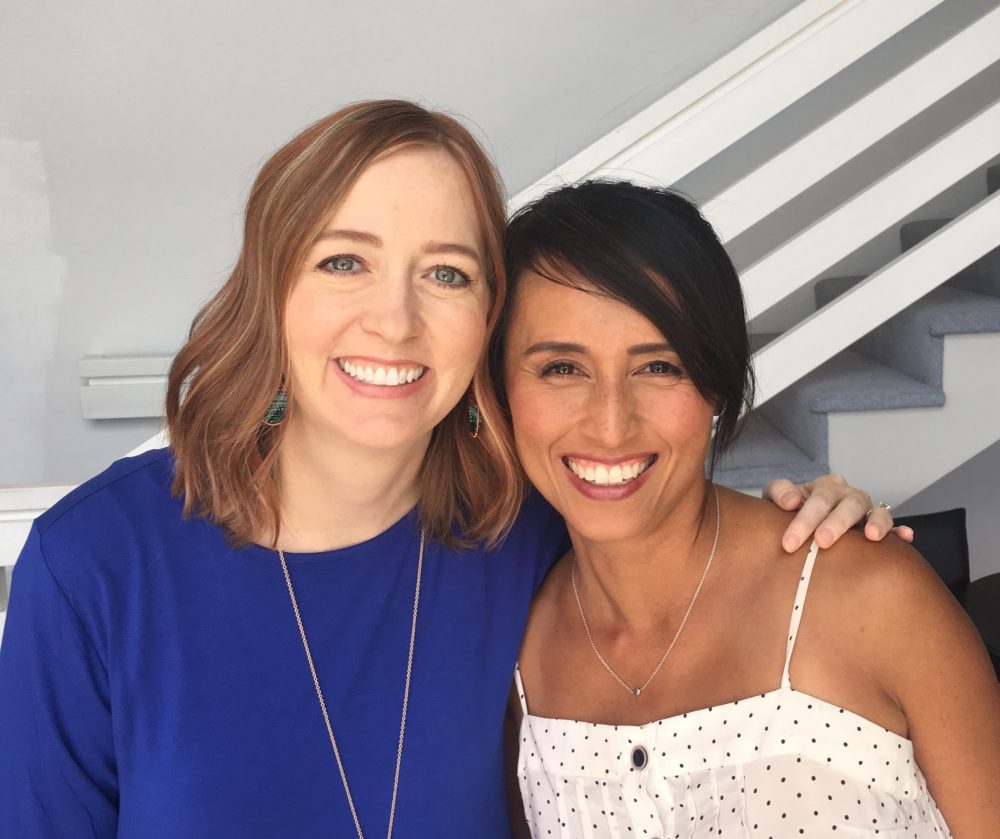
I sat down with the creative team behind Friends Forever to talk about their middle school experiences, and what advice they would give to their eighth grade selves.
Nancy Powell: Shannon, the first two books explored the trials and tribulations of friendship through elementary and middle school. Can you talk about where we find the fictional Shannon in this third book?
Shannon Hale: Well, I wouldn’t call her fictional. This is a memoir, not fiction. She’s little me, so my editor Connie and I started to call her Little Shannon or LS. Friends Forever takes place entirely in eighth grade, and LS feels like she should be doing great. She’s figured out how to handle a middle school schedule and has more friends than ever, but she feels pretty bad most of the time and doesn’t know why. She starts off the year determined to become the kind of person who she thinks would feel happy, but it doesn’t go as planned.
Powell: There are some pretty heavy moments in dealing with Little Shannon’s neuroses. As a mother of an OCD child, I could definitely relate to the character’s episodes of anxiety and the situations she found herself in. How difficult was it to write about these experiences as an adult?
Hale: I didn’t find out I had OCD till I was an adult, and then it was like, “Ohhhhh, so that’s what was going on!” I wish I’d known at the time so I wasn’t hating myself for feelings and thoughts I couldn’t control. As an adult, I wanted to show the truth of how that felt to readers, so hopefully those kids like me won’t feel alone. But, yeah, this was extremely hard to write. Definitely the most emotionally demanding of the three. But it was worth it if it helps any kids.
Powell: LeUyen, how did the story resonate with your own elementary and middle school experiences?
LeUyen Pham: The first two books were books that I related to deeply, as I had experienced some very similar things to what Shannon went through in those books. This book was probably the first time I felt our experiences departed from each other. I wasn’t a drama kid, as I remained fairly shy and definitely had stage fright. But Shannon makes all her experiences so readily identifiable — her younger self is almost an ‘every girl’.
And of course, what kid out there doesn’t wish they were better looking, attractive to other kids without understanding it, suffer from fear of rejection, etc. Middle school is such a crazy time, so incredibly tough. That space between being a kid and becoming an adult is so rife with anxiety and confusion, so many of us as kids don’t have all the parts needed to get through it. On that, I think anyone can relate to this book.
Powell: Can you talk a bit about your collaborative processes? How do the two of you work through a script?
Hale: I write the script, revising it with our editor and getting it polished before Uyen gets it. I don’t want to waste a second of her drawing time, so it’s important to get those problems solved and decisions made up front in the script. And then as Uyen sketches, we do talk, but not much. Uyen and I joke that we share a brain because we just get each other so thoroughly. I write, she draws, and what we produce is somehow, magically, totally in sync.
Powell: Do either of you have children? And do you see the same types of problems repeat themselves in your own children?
Hale: I have four kids, and yes, I’d say much of what I was struggling with in middle school is still relevant today. Mental and emotional issues, bullying, stress from high expectations, all the turmoil in changing brains and bodies. The sexism against girls hasn’t gone away but it might not be quite as bad as I experienced in 1987. I’m not sure today a teacher would assign a boy to argue against equal rights for women.
Pham: It’s funny, I have a son who was in eighth grade during the time I was working on this book, and I reference his own experiences a lot. He was my go-to for this book any time I felt I was doing anything that might not be authentic. I like to think that working on the book during this year of his life helped him to steer clear of some of the problems happening in the book, as we spent a lot of time talking about Shannon’s choices in the stories. It’s quite an experiment, raising an eighth grader with this book!
Powell: So onto a different topic! What books are each of you currently reading?
Hale: I’m usually reading at least three books, and right now they are: an audio book (The Highly Sensitive Child), a graphic novel (Big Apple Diaries) and a novel (The Refugees).
Pham: I’m finishing up a couple graphic novels as well, Stargazing by Jen Wang, and The Girl and the Sea by Molly Knox Ostertag. I just finished reading the amazing The Breadwinner by Deborah Ellis with my youngest while explaining the craziness of the world right now. And I’ve just started Klara and the Sun, by Kazuo Ishiguro.
Powell: What writers or artists do you admire and why?
Hale: That is such a loaded question for a highly sensitive writer because I admire scores and scores of them, but also many are my friends, and so I worry, what if I forget to mention someone and it hurts their feelings? So I’m just going to keep it simple. LeUyen Pham. I admire Uyen from toes to nose. She is absolutely brilliant at depicting emotion and character through facial expression and body language. She is a master of mood. She creates beauty but also she tells the story. The work she does in these books leaves me (honestly) weeping in admiration and gratitude.
Pham: I paid her to say that. Totally. Oh boy, there are so many artists I love and writers I wish I could be. Sophie Blackall, Carson Ellis, Gene Yang, Barbara Cooney, Laurel Snyder — too many creators for too little space. But my favorite writer of all time is Shannon Hale. Everything she writes I want to illustrate. Everything. I get raging jealous when she gets another illustrator to do her work. But I literally can’t keep up with her and her imagination. I could never draw as fast as she writes. So I get it that she needs to find other artists. But yeah, Shannon is my numero uno!
Powell: If you could pick a comic book character as a best friend, who would that be and why?
Hale: Squirrel Girl. I think hanging around someone so optimistic yet also brilliant and funny could only be good for my anxiety.
Pham: Hobbes, from Calvin and Hobbes. I think we all need a Hobbes in our lives…
Powell: As you write about these experiences, what would the adult Shannon/LeUyen tell the eighth grade versions of themselves on how to handle friendships?
Hale: I am not very good at giving advice. That’s why I write stories. I hope if I tell a true story with compassion, then through the process of reading it, kids can tell themselves the advice they need to hear. So I guess I’d give eighth grade me a copy of this book.
Pham: Ooh, boy. You know what I say? Kindred spirits come at all different times of your life. You’re lucky if you find one early, and if you do, make sure you keep ’em. But if you don’t, don’t despair. I found most of my kindred spirits throughout my life, and still find them. Friends are wonderful that way — there are so many to discover, it just takes time to find them. Friends forever, I say.
Published by First Second Books, Friends Forever arrives in bookstores on Tuesday, August 31st and in comic shops on Wednesday, September 1st.


